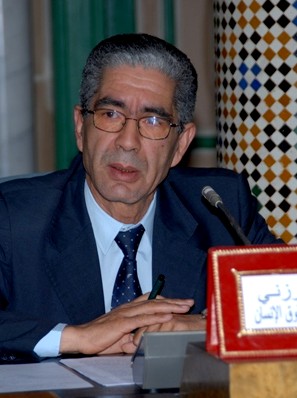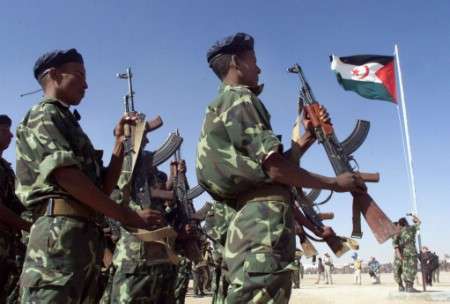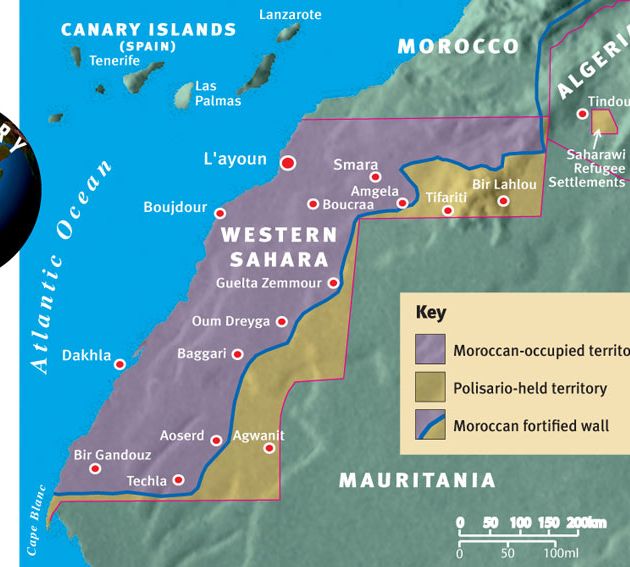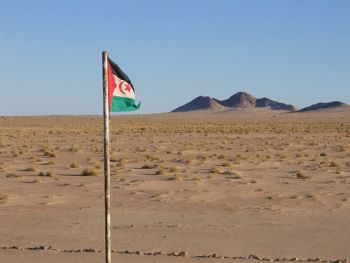
Ahmed Herzenni, President of Morocco’s Advisory Council on Human Rights (CCDH)
Morocco has over the years been accused of the systematic use of extrajudicial detentions and killings, especially against persons opposing the occupation of Western Sahara, shows an English translation of the CCDH report, obtained by Afrol News. The report was finalised in December 2010 but not meant for the general public.
Moroccan authorities categorically deny these facts.
HR more respected
Since the 1990s, however, human rights were gradually more respected in Morocco, in particular after current King Mohammed VI ascended to the throne in 1999.
Institutions like the CCDH were created and allowed to dig into earlier abuses to promote national reconciliation. But in particular in occupied Western Sahara, human rights abuses, including “disappearances”, remain the norm.
The CCDH report outlines how 352 named Saharawis, whose whereabouts have been unknown for decades, either died in combat or were killed in detention.
144 killed in combat
Out of these, some 144 Saharawis had been killed in military combat, according to the report, which however does not give details about the circumstances of their death. The families of these Saharawis killed in combat so far have not been informed about the death or site of burial of their relatives.
Most of the other Saharawis mentioned in the Moroccan report died while in detention without any preceding trial. Some 115 persons died in several Moroccan military bases, including 14 child

Saharawi soldiers
ren aged from 3 months to 15 years. Some 13 people were executed by a martial court in 1976.
Died due to mistreatment
The remaining “missing” Saharawis died in civilian detention centres, both ordinary Moroccan prisons and secret detention centres, which were customary at the time. The report mostly outlines how these prisoners died due to mistreatment in detention or during transport.
Also the families of these victims have so far received no information about the whereabouts or status of their relatives. The dead prisoners were buried, typically within prison walls, without the knowledge of their families.
The Moroccan human rights officials were able to document the faith of the 352 Saharawis – which had not be properly registered by authorities earlier – by interviewing military and prison staff, in addition to other victims still alive. In most cases, they were also shown where the prisoners were buried.
The CCDH investigation goes up to 1992. At that point, some 261 imprisoned Saharawis were released, many of which had spent over ten years in secret detention without any trial. Some of these survivors served as informants to the CCDH officials.
Reaction
The first Sa harawi reactions to this indirect Moroccan recognition of human rights abuses has been negative. Abdeslam Omar Lahsen, leader of a Saharawi association of families of the disappeared, says the report documents that “crimes against humanity” had been committed and demands an international court to look into the case.
harawi reactions to this indirect Moroccan recognition of human rights abuses has been negative. Abdeslam Omar Lahsen, leader of a Saharawi association of families of the disappeared, says the report documents that “crimes against humanity” had been committed and demands an international court to look into the case.
“Far from healing wounds, this recognition by Morocco reopens the case of the victims of forced disappearance,” Mr Lahsen says in a statement. He adds that Morocco is still “keeping the impunity of the perpetrators of the crimes against humanity committed against the Saharawi people.”
Related articles:

Western Sahara: civilians attacked by Maroccan security forces
Western Sahara: forgotten conflict with suffering people
Western Saharan hunger strikers – Morocco’s human rights violations
Sahrawis dissatisfied with UN chief and peacekeeping mission MINURSO
Polisario Front calls on UN to supervise human rights in territories under its control
Rafto laureate calls on UN and EU to supervise the human rights situation in Western Sahara


